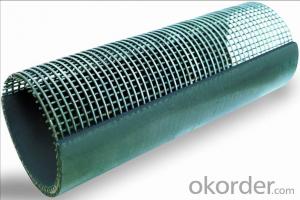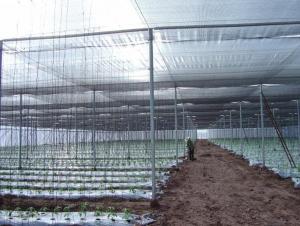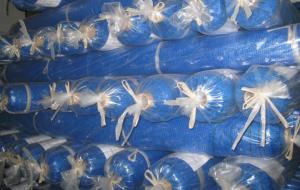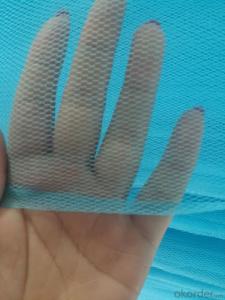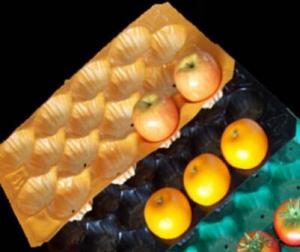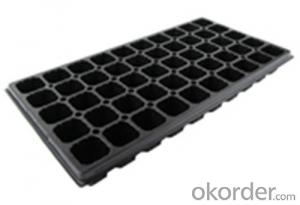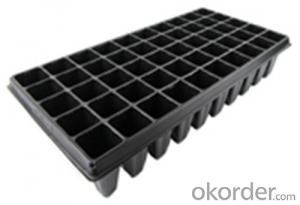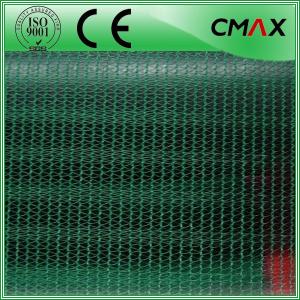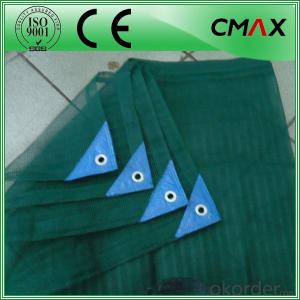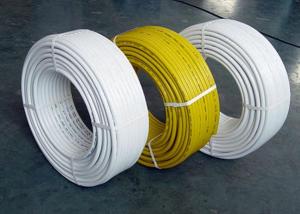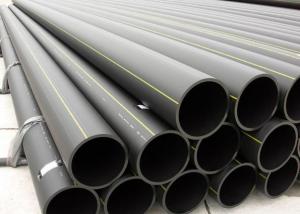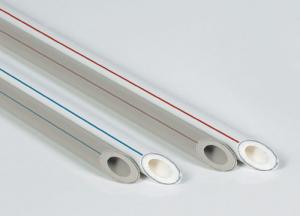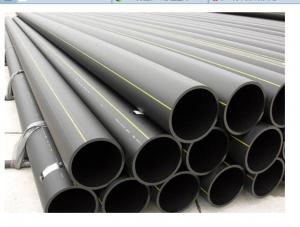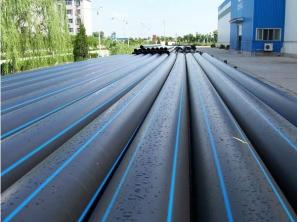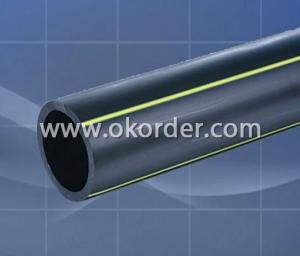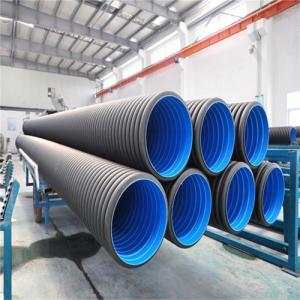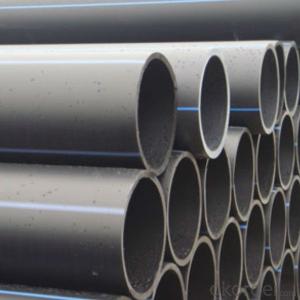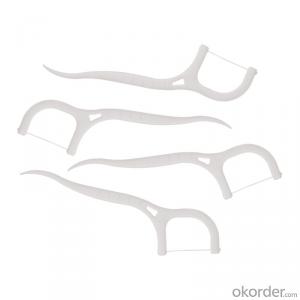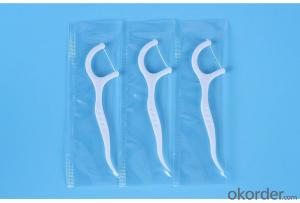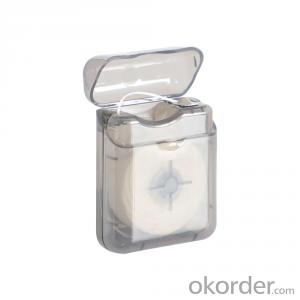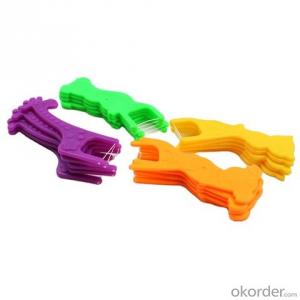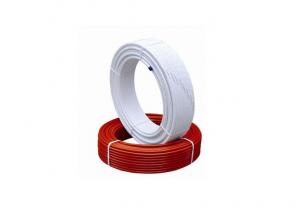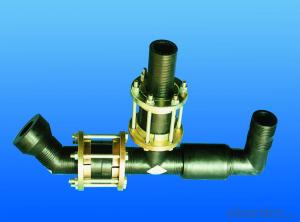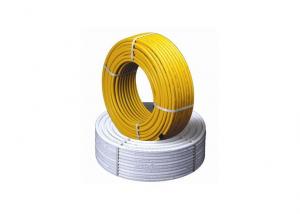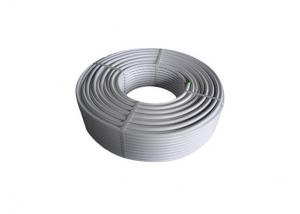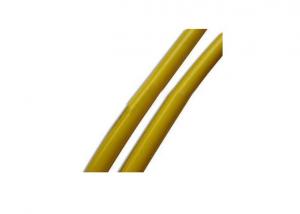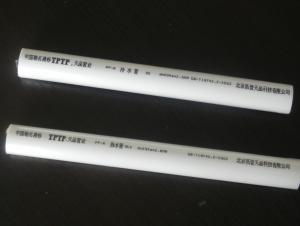steel mesh reinforced plastic pipe
OKorder Service Pledge
OKorder Financial Service
You Might Also Like
Structure
The Steel Reinforced PE Pipe is a new kind of high density polyethylene pipe which is reinforced by a steel wire skeleton. Crossing steel wire are spots welded as a net-cylinder structure during the manufacturing process. HDPE , the stuffing material of the structure ,is continuously extruded on producing line. The structure is similar to reinforced concrete structure.
This combination makes the pipe far stronger than standard HDPE pipe and more flexible and corrosion-resistant than steel pipe. Many of its inherent characteristics are far superior to those of HDPE or steel pipe.
Material
The stuffing material of the steel mesh reinforced HDPE pipe and fittings is PE 80 (piping class), and the high quality low-carbon steel wire is used as the reinforced part of the pipes and Q235 steel sheet is used for the fittings.
Characteristics of PE 80(piping class) material
Characteristics Test Standard Unit Result
Melt Flow Index(5Kg,190℃) | ASTM D 1238 | G/10min | 0.56 |
Density | ASTM D 792 | G/cm3 | 0.954 |
Tensile Yield Strength | ASTM D 638 | Kg/cm2 | 230 |
Tensile Fracture Strength | ASTM D 638 | Kg/cm2 | 370 |
Tensile&Elongation Ratio | ASTM D 638 | % | ≥600 |
Brittleness Tempreature | ASTM D 746 | ℃ | ≤-70 |
Linear Expansion Coefficient | DIN 53752 | K-1 | 1.3x10-4 |
ESCR (F50) | ASTM D 1689 | HR | >2000 |
Thermal Stability | ISO 10837 | min | >20 |
Grade | ASTM D 4131(B) | | PE 80 |
Long-term Hydro Static Strength | ISO 9080 | MPa | 9.33 |
Short-term Hydro Static Strength | ASTM D 4131 | HR | >165 |
The characteristic of steel wire and sheet
Characteristics | Test Standard | Unit | Result | |
Steel wire | ||||
Tensile strength | GB/T 343-1994 | MPa | 400-500 | |
Tensile&Elongation Ratio | GB/T 343-1994 | % | 12 | |
Steel sheet | ||||
Tensile strength | GB/T 709-1988 | MPa | 200 | |
Tensile&Elongation Ratio | GB/T 709-1988 | % | 10 | |
Characteristics
a. Excellent corrosion resistance
Generally acknowledged as the anti-corrosion material, PE has an excellent property that can resist nearly 275 kinds of corrosive medium, such as non-oxidizing acid, alkali and saline solutions.
b.Super hydraulic performance
The absolute roughness of the steel mesh reinforced PE pipe is 0.01mm only while that of the steel pipe is 0.2mm. So the flow resistance is smaller and the conveying capacity is obviously higher than the normal steel pipe under the same condition.
c.Good flexibility and anti-seismic property
The steel mesh reinforced PE pipe has moderate elastic modulus. So it has excellent adaptability to the nonuniform settlement foundation and ground displacement. The good anti-seismic performance will reduce the cost of losses maximally when earthquake occurs.
d.Lighter weight and easier installation
The density of steel mesh reinforced PE pipe is only 40% of that of steel pipe, we don't need the lifting equipment on site when installing pipes of small caliber. Using this kind of pipe can also save bend fittings benefit from the pipe laying according to the topography to the general undulating land. And the requirement of trench digging is less than steel pipe.
e.Super abrasion resistance
Generally, the abrasion property of polyethylene is superior to normal metal material .lt dedicates the abrasion resistance feature of steel framed reinforced PE composite pipe is exactly better than that of the normal steel pipes.
Solid Content | 7 | 14 | 8.8 | |
Wearing Capacity (μm/h) | SR-HDPE | 0.38 | 0.58 | 0.23 |
| | Steel | 1.5 | 2.3 | 0.9 |
f.Excellent heat preservation property
The basic stuffing material of steel mesh reinforced PE pipe is polyethylene. The Thermal conductivity coefficient of PE is 0.43W/m℃,and that of the steel pipe is 2.5 W/m℃. So the heat preservation property is very good. Also we don't need any heat-insulation treatment even installing overhead.
g.Outstanding hygienic character
PE material is nontoxic and is widely used in food industry . The steel mesh reinforced PE pipe use PE as basic stuff ,and it has passed each test of the National Preventive Medical Association and gotten the Healthy Permit for portable water conveying. So our pipe can meet the requirements of Food Hygiene Law and Healthy Evaluation. At the same time, the inner surface of our pipe is bacteria free ,electrochemistry corrosion free and won’t introduce secondary pollution.
h.Working lifetime is longer and comprehensive cost is lower
The features of PE material ensure the working lifeof steel mesh reinforced PE pipe is much longer and comprehensive cost much lower than those of the normal steel pipe in the fields of conveying corrosive medium.
Benefit from the property of anti-corrosion, flexibility and heat preservation, etc., this pipe can be used on the industry of Mining, Oil, Gas, Chemical, the transportation of Ore Pulp and Tailings.
- Q:Are composite pipes resistant to pressure surges?
- Yes, composite pipes are generally resistant to pressure surges. The layered construction of composite pipes, which typically consist of high-strength fibers or particles embedded in a polymer matrix, provides them with excellent strength and flexibility. This allows them to withstand and absorb pressure surges without experiencing significant damage or failure. Additionally, the composite materials used in these pipes often have superior fatigue resistance, which further enhances their ability to withstand pressure fluctuations over time.
- Q:Can composite pipes be used for liquid fertilizer distribution?
- Yes, composite pipes can be used for liquid fertilizer distribution. Composite pipes are known for their corrosion resistance, durability, and flexibility, making them suitable for handling various fluids, including liquid fertilizers. They can withstand the corrosive properties of fertilizers and maintain their structural integrity, ensuring efficient and reliable distribution of liquid fertilizers.
- Q:Do composite pipes require pressure testing before installation?
- Yes, composite pipes typically require pressure testing before installation to ensure their integrity and ability to withstand the intended operating conditions.
- Q:Service life of stainless steel composite pipe lined with stainless steel
- Why use composite pipes, the most important thing is cheaper. However, the composite tube 1. if the diameter is large, the composite pipe made of composite plate has a risk of delamination after crimping. 2. if it is lined with stainless steel pipe, the pressure is less. 3. if the composite pipe joint, welding. The safety factor of compound pipe welding machine is not pure stainless steel.
- Q:Can composite pipes be used for offshore oil rigs?
- Yes, composite pipes can be used for offshore oil rigs. Composite pipes are lightweight, corrosion-resistant, and have high strength-to-weight ratios, making them suitable for offshore environments. They can withstand harsh conditions, including saltwater corrosion, extreme temperatures, and high pressures, making them an ideal choice for oil and gas operations on offshore rigs.
- Q:Are composite pipes resistant to UV radiation?
- Yes, composite pipes are generally resistant to UV radiation. The materials used in composite pipes, such as fiberglass and resin, are specifically engineered to withstand the effects of UV radiation and do not degrade or weaken under exposure to sunlight.
- Q:Can composite pipes be used for fire protection systems?
- Yes, composite pipes can be used for fire protection systems. Composite pipes are made of materials that are resistant to fire and have high strength, making them suitable for use in fire protection applications. Additionally, composite pipes offer benefits such as corrosion resistance, lightweight design, and ease of installation, making them a reliable option for fire protection systems.
- Q:Do composite pipes require insulation?
- Yes, composite pipes generally require insulation to ensure optimal performance and prevent heat loss or gain. Insulation helps maintain the desired temperature of the fluid flowing through the pipes and prevents condensation, which can lead to corrosion and other issues.
- Q:Can composite pipes be used for vacuum drainage systems?
- Yes, composite pipes can be used for vacuum drainage systems. Composite pipes are known for their durability, corrosion resistance, and lightweight nature, making them suitable for various applications, including vacuum drainage systems. They offer excellent performance, high strength, and flexibility, which are essential for efficient and reliable operation in vacuum drainage systems.
- Q:What is the maximum temperature that composite pipes can handle?
- The maximum temperature that composite pipes can handle varies depending on the specific material composition and design of the pipes. However, composite pipes are often capable of withstanding high temperatures up to approximately 200-300 degrees Celsius.
1. Manufacturer Overview |
|
|---|---|
| Location | |
| Year Established | |
| Annual Output Value | |
| Main Markets | |
| Company Certifications | |
2. Manufacturer Certificates |
|
|---|---|
| a) Certification Name | |
| Range | |
| Reference | |
| Validity Period | |
3. Manufacturer Capability |
|
|---|---|
| a)Trade Capacity | |
| Nearest Port | |
| Export Percentage | |
| No.of Employees in Trade Department | |
| Language Spoken: | |
| b)Factory Information | |
| Factory Size: | |
| No. of Production Lines | |
| Contract Manufacturing | |
| Product Price Range | |
Send your message to us
steel mesh reinforced plastic pipe
OKorder Service Pledge
OKorder Financial Service
Similar products
New products
Hot products
Related keywords
